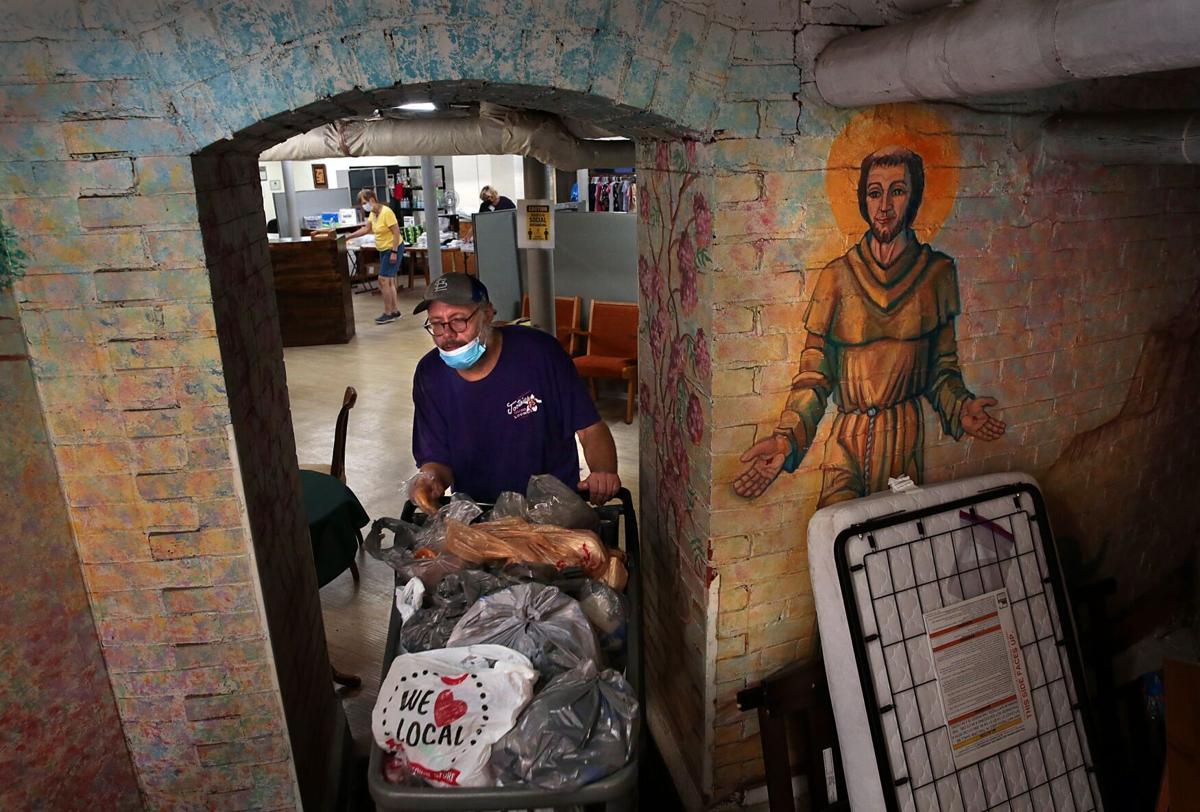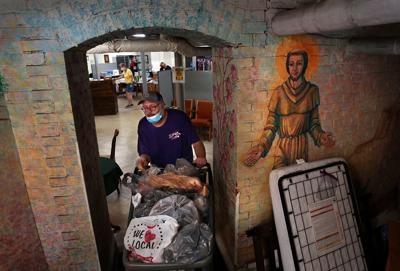ThereŌĆÖs no such thing as a free lunch in the Archdiocese of ├█č┐┤½├Į.
ThatŌĆÖs literally the new legal guidance being offered to Catholic schools in the region in a confidential memo sent to pastors, school presidents and principals.
The Aug. 16 memo, obtained by the Post-Dispatch, urges schools in the Archdiocese to ŌĆ£no longer participate in the National School Lunch Program,ŌĆØ or other USDA food and milk grants.
That will potentially leave thousands of Catholic school children without access to the free meals they have had in previous years.
ItŌĆÖs not clear, at least publicly, why the Archdiocese is taking this step.
ŌĆ£Due to changes in the interpretation of the Civil Rights Act, the non-discrimination statements for these programs has changed significantly,ŌĆØ reads the memo, sent by General Counsel Tom Buckley. ŌĆ£Schools that receive funds from the USDA would be required to adhere to the policies of these programs. The changes in these policies would be problematic for schools and programs of the Archdiocese to fully live out the mission of our Catholic Church.ŌĆØ
People are also reading…
The memo doesnŌĆÖt offer specifics on the changes.
But nationally, some Catholic school officials have been concerned with a proposed rule change to Title IX, a federal law that prohibits sex discrimination. This summer, the Biden administration proposed an expansive reinterpretation of Title IX to include protections of sexual orientation and gender identity. The Catholic News Agency that some Catholic officials are worried that the new anti-discrimination rules ŌĆö once they are final ŌĆö would open up schools to discrimination complaints that conflict with Catholic teaching on homosexuality.
Also, earlier this year, the Archdiocese of ├█č┐┤½├Į and one of its schools, Our Lady of Lourdes in Washington, Missouri, were sued in federal court by a family who claims their disabled daughter was discriminated against. Key to the lawsuit is an argument that if the school received federal money, such as through the USDAŌĆÖs lunch program, federal law requires the school to follow a section of the Rehabilitation Act, which outlines certain requirements of serving students with disabilities.
When I contacted the Archdiocese for an explanation of the memo, spokesman Brecht Mullvihill said in a statement:
ŌĆ£As with any federal subsidy, schools that participate in these programs are subject to a wide variety of federal mandates, which could ultimately impact decisions concerning admissions, extracurricular activities, facilities, and logistics. In some circumstances, these mandates would impede a schoolŌĆÖs ability to faithfully carry out the teachings of the Catholic Church. For this reason, the Archdiocese of ├█č┐┤½├Į has decided not to participate in these programs.ŌĆØ
Which mandates? The memo doesnŌĆÖt say. Mullvihill declined to provide clarity. He said about a dozen Catholic schools in the ├█č┐┤½├Į region participate in the National School Lunch Program, and a ŌĆ£larger numberŌĆØ participate in the USDAŌĆÖs special milk program. The Archdiocese of ├█č┐┤½├Į serves about 50,000 students in 11 counties.
The memo from the Archdiocese urges schools to ŌĆ£assist parents and families that may have qualified for these benefits on the local level.ŌĆØ Mulvihill said the Archdiocese is looking at options to provide ŌĆ£similarŌĆØ meal service to the canceled federal programs.
The memo adds credence to one of the key allegations made in the federal civil rights lawsuit filed earlier this year: At least some Catholic schools receive federal money, and receipt of that money comes with strings attached. Lawyers for the district have denied in court documents that the school receives federal money or that any discrimination took place.
Nationally, about half of the Catholic schools in the country participate in one or more of the USDA programs, according to Sister Dale McDonald. SheŌĆÖs the vice president of public policy for the , which represents Catholic educators. McDonald says about 52% of Catholic schools nationwide participate in the USDA free lunch programs.
In the city of ├█č┐┤½├Į, and several of the rural Catholic schools in the Archdiocese, large percentages of the student bodies qualify for free or reduced lunch, based on income.
McDonald says sheŌĆÖs aware of no other Catholic archdiocese that has told its schools to drop out of the free and reduced lunch program. ThatŌĆÖs in part because religious organizations can seek an exemption from the new Title IX rules, . In other words, religious organizations have an out, if they want one. Both the Archdiocese of Kansas City in Kansas, and the Diocese of Kansas City-St. Joseph in Missouri, confirmed they are continuing to use the USDA food programs in their Catholic schools.
Ken Chackes, the attorney who represents the Washington couple suing the Archdiocese of ├█č┐┤½├Į, said the new policy is unfortunate for families whose children need the food.
ŌĆ£Without the federal free and reduced-price meals, many, many kids will go hungry or their parents will suffer a financial hardship,ŌĆØ Chackes said. ŌĆ£What a shame that the Archdiocese would rather let that happen than comply with basic anti-discrimination laws.ŌĆØ
In ├█č┐┤½├Į, the change comes at a time of increasing hunger amid the ongoing COVID-19 pandemic and higher food prices. Rob Telthorst, who runs the food pantry at St. Anthony of Padua, a Catholic Church on the south side of ├█č┐┤½├Į, says the pantry has seen increased need this summer.
For Telthorst, having to meet anti-discrimination standards has long come with the realities of running a Catholic food pantry because much of the food originates with the USDA.
ŌĆ£Our tradeoff for taking thousands of pounds of free food is we have to abide by all the U.S. civil rights guidelines,ŌĆØ Telthorst says. ŌĆ£I have to offer civil rights training to my volunteers to make sure there is no hint of discrimination related to those guidelines.ŌĆØ
Telthorst thinks the food pantries in the area will likely be called upon to pick up the slack, much as they often are in the summer when school is out of session.
ŌĆ£IŌĆÖm glad the archbishop didnŌĆÖt send the letter to the food pantries,ŌĆØ he said.















